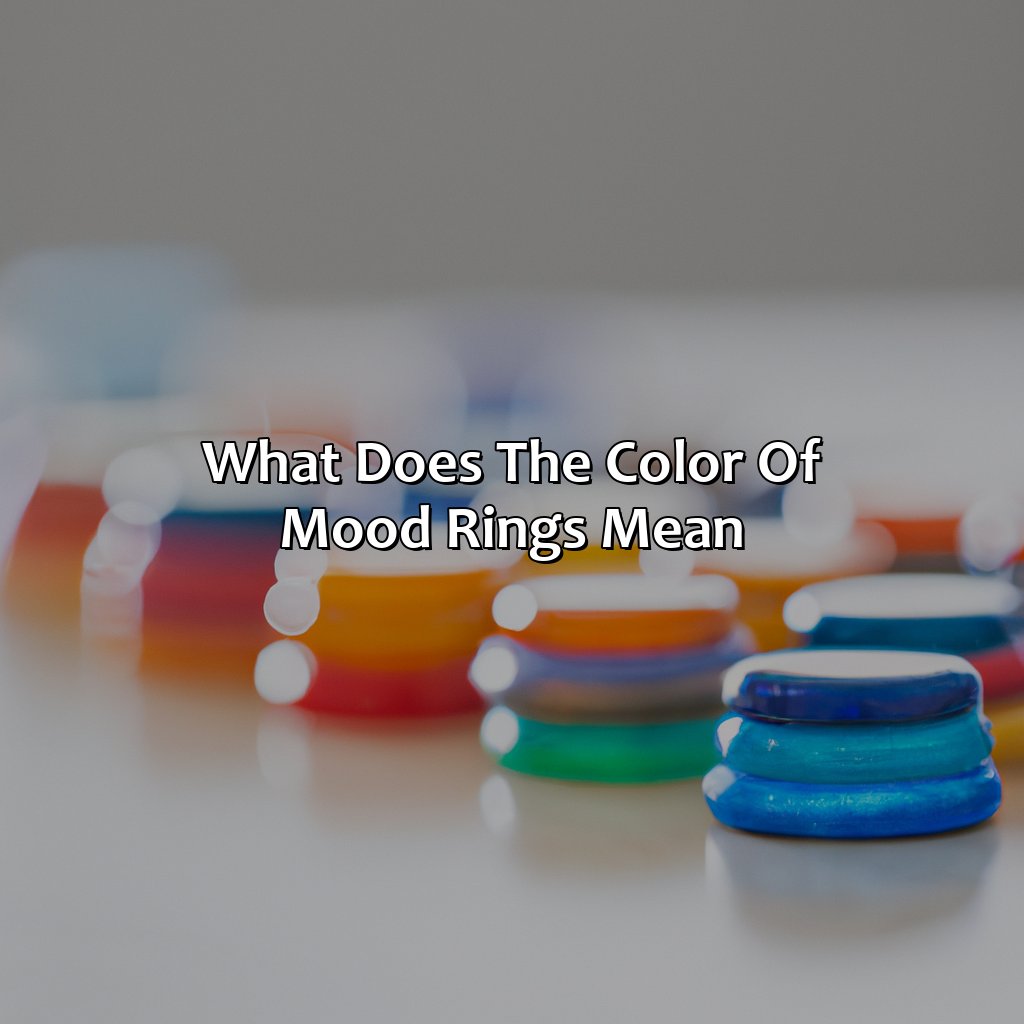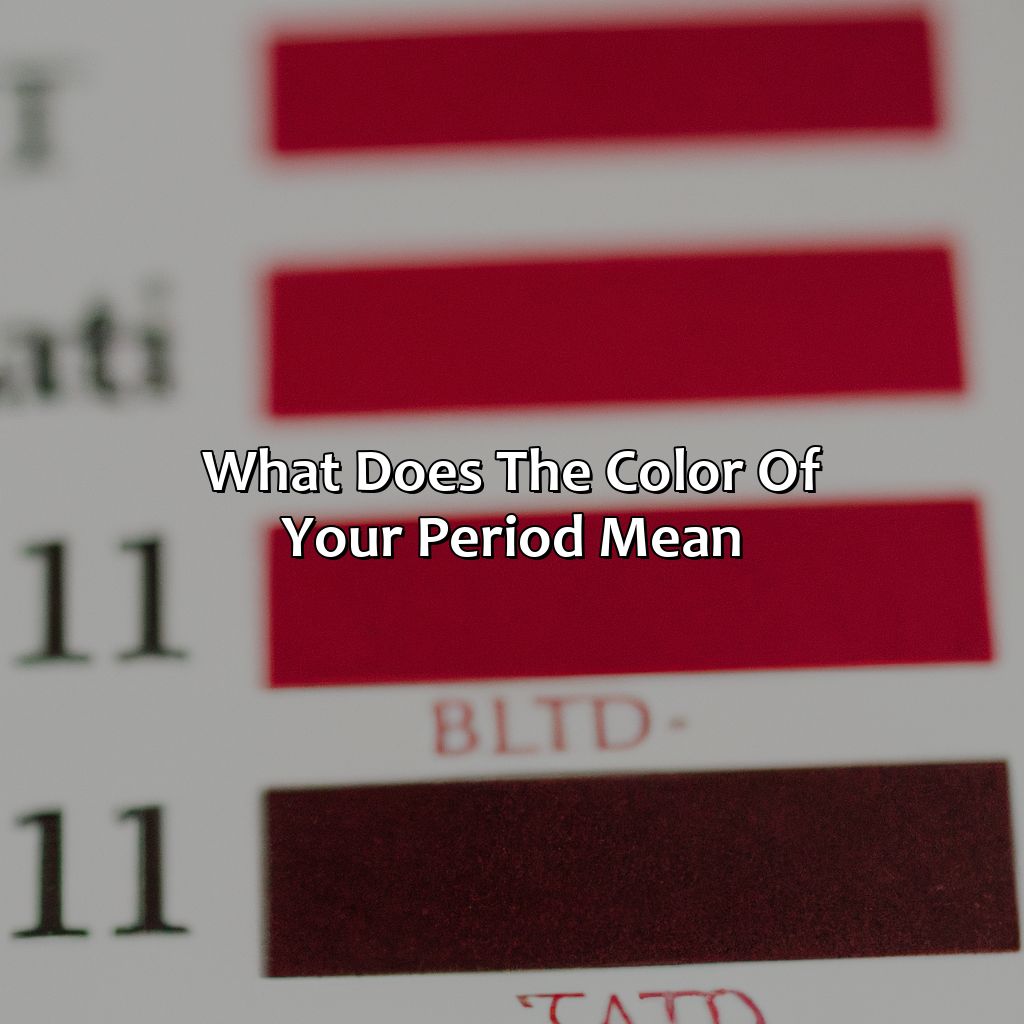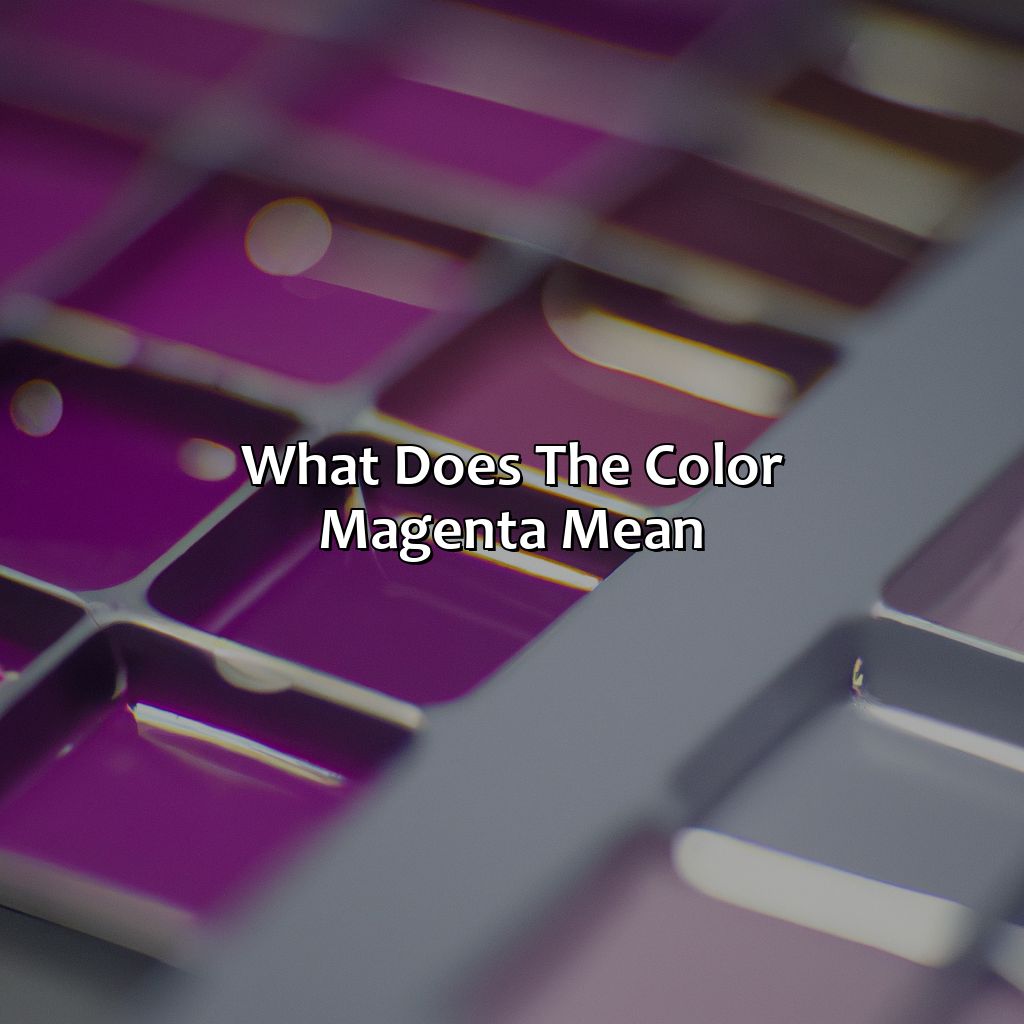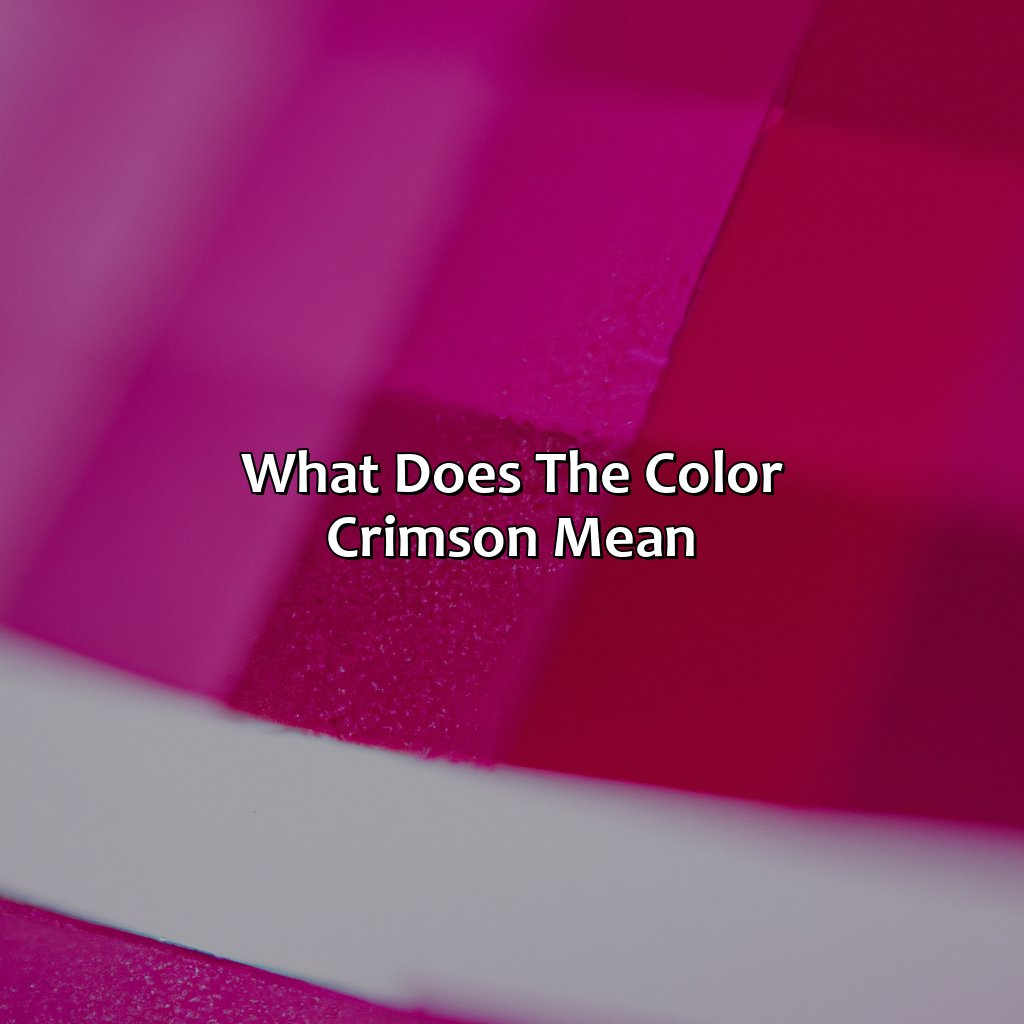Key Takeaway:
- The color black holds significant cultural symbolism in Japan. In Japanese culture, colors have an important role in expressing emotions and cultural traditions.
- Historically, the black color has had a positive connotation in Japanese traditions and was used to symbolize strength and power.
- However, black color also holds a negative connotation in Japanese culture and is associated with death, mourning, bad omens, ghosts, and witchcraft. It is commonly worn at funerals and is believed to ward off evil spirits. It is important to understand these cultural nuances and superstitions when using black color in any form of artwork or design in Japan.
The Cultural Significance of Colors in Japan
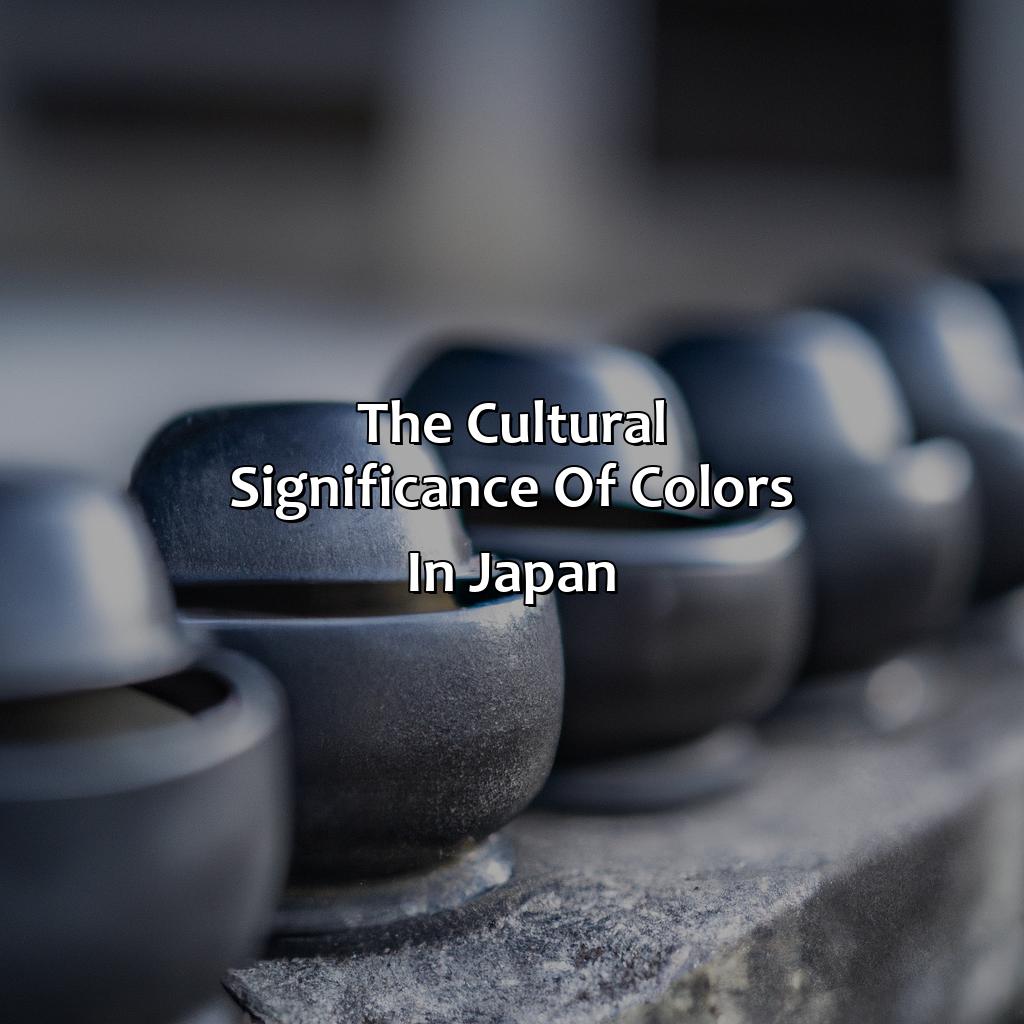
Photo Credits: colorscombo.com by Zachary Adams
Japan is a country where colors hold great cultural significance and symbolism. Traditional Japanese colors are rich in symbolism and are used in various aspects of Japan’s culture, such as art, fashion, and festivals. Each color holds a unique meaning and is associated with different emotions and values.
For instance, black is often associated with death and mourning in Japan, but it also represents strength, formality, and elegance. In traditional Japanese culture, people wear black to funerals and show sympathy and respect for the deceased.
Moreover, each season in Japan is associated with a specific color. In spring, pink represents the blooming cherry blossoms, while in summer, blue and white are associated with fireworks and festival attire. Autumn is represented by a rich palette of warm, earthy colors, and in winter, red and green are associated with Christmas.
Interestingly, there was a time in Japan’s history where wearing colorful clothes was seen as extravagant and frowned upon. Samurai warriors, for example, were expected to wear subdued colors to demonstrate their discipline and devotion to duty.
Black Color Symbolism in Japanese Culture
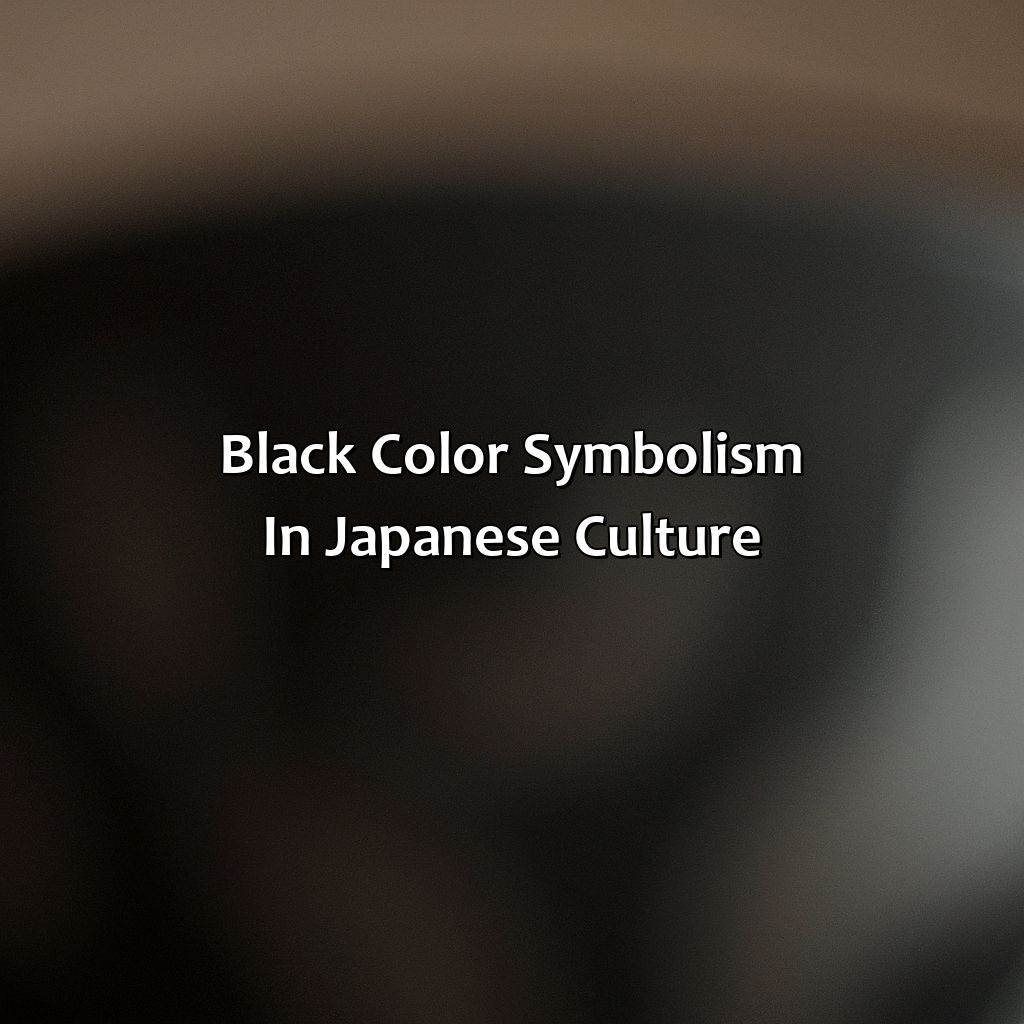
Photo Credits: colorscombo.com by Andrew Hill
In Japan, black has a deep and meaningful symbolism. To explore this, we must look at its history. Positively, black is associated with traditional garments and calligraphy, representing elegance and simplicity. On the flip side, it has negative connotations of mourning, darkness, the underworld and death.
This section will also look at taboos, superstitions and bad omens linked to black.
Historical Significance of Black Color in Japan
The black color in Japan holds great historical significance and is deeply rooted in the country’s culture. From the early days of samurai warriors wearing black armor to the practice of blackening teeth, this color has been a symbol of strength, power, and elegance. The use of black color increased during the Edo period where it became popularized in kimonos as a sign of beauty. Shortly after this time, Japanese fashion designers started using black universally in their collections.
During the Meiji period, when Japan was modernizing rapidly, western influences brought concerns about death and mourning. Given this reason, the Japanese bureaucracy began using European-style official dress for its court officials; however, they colored them black following their tradition. This showed respect for their local cultural practices.
Black is also used prominently in traditional arts such as calligraphy and ink painting. The monochrome graduation from white to ink-black symbolizes nothingness in Zen Buddhism called “Enso.” It illustrates clarity and simplicity while representing enlightenment and perfection through introspection.
Even in Japan, black is the new black when it comes to positive connotations in traditional customs and beliefs.
Positive Connotations of Black Color in Japanese Traditions
Black color in Japanese traditions is associated with various positive connotations. From ancient times, black was considered a symbol of status, power, and dignity. Samurai warriors wore black armor and carried black flags with them during battles to represent their authority and strength. In modern Japan, the use of black remains significant in traditional clothing, architecture, and art.
The significance of black color is deeply rooted in Japanese culture, especially in tea ceremonies. The principles of a tea ceremony emphasize simplicity, purity, and tranquility which are represented by the dominant use of black colors all around the room. Black is also used to create contrast against other bright colors such as red or gold which symbolizes prosperity and fortune.
In addition to cultural significance, black color holds much importance in traditional Japanese festivals as well. One such example is the ‘Shichigosan’ festival for children where girls wear ‘kurotomesode’, a type of kimono which has a black base color that represents modesty.
To appreciate and understand the positive connotations associated with black color in Japanese traditions, it is essential not to judge it solely from a Western perspective but rather to learn about its cultural context to fully interpret its symbolism. Understanding this can help us embrace its uncompromising elegance and beauty throughout different areas of Japanese life.
For those who want to incorporate the positive energy of black into their lifestyle inspired by Japanese culture may add accents of dark colors like navy blue or charcoal gray while opting for sleek modern designs that emphasize sophistication yet remain minimalistic while retaining an understated elegance on everything from clothing through furniture items down even small fashion accessories like tie-pins or wristwatches can exude confidence and elegance when done properly.
Black in Japanese culture: where everything from funerals to tea can brew up negative vibes.
Negative Connotations of Black Color in Japanese Culture
Black Color Symbolism in Japanese Culture has a fascinating history that is marked by both positive and negative connotations. While the color black represents virtues such as strength, power, and elegance in traditional Japanese culture, it is also associated with darkness, yin energy, and void.
In Japan, the color black had and still has associations with mourning. In fact, during funerals, mourners often wear dark clothing to show respect for the deceased. The connection between black and death can be traced back to ancient beliefs about underworld spirits who were believed to inhabit the shadows.
In Zen Buddhism, black symbolizes the mystery of existence and signifies that which is hidden or difficult to grasp. This concept is reflected in sumi ink calligraphy where artists use only black ink on paper to insinuate a sense of obscurity or mystery.
In other contexts, black color is often associated with bad omens and taboos. In samurai culture, for example, ninjas were known to dress in all-black attire to blend into shadows and remain unnoticed during covert operations. Similarly, in traditional Japanese theater (noh), kuroko are stagehands who wear all-black clothing so that they may blend into the background while manipulating props.
The symbolism of black takes on different meanings depending on its context but generally portrays negativity from demons’ representation in films to witchcraft’s association with noir culture. Despite this negativity association at times it returns as an elegant tone representing sophistication – seen in black tea ceremonies or even homes decorated entirely with varying shades of blacks.
Overall understanding of Black Color Symbolism can provide an understanding of Japan’s beliefs and practices’ history and culture. Black is the ultimate chameleon in Japanese art and design, seamlessly blending into traditional clothing, modern fashion, and interior decor.
The Use of Black Color in Japanese Art and Design
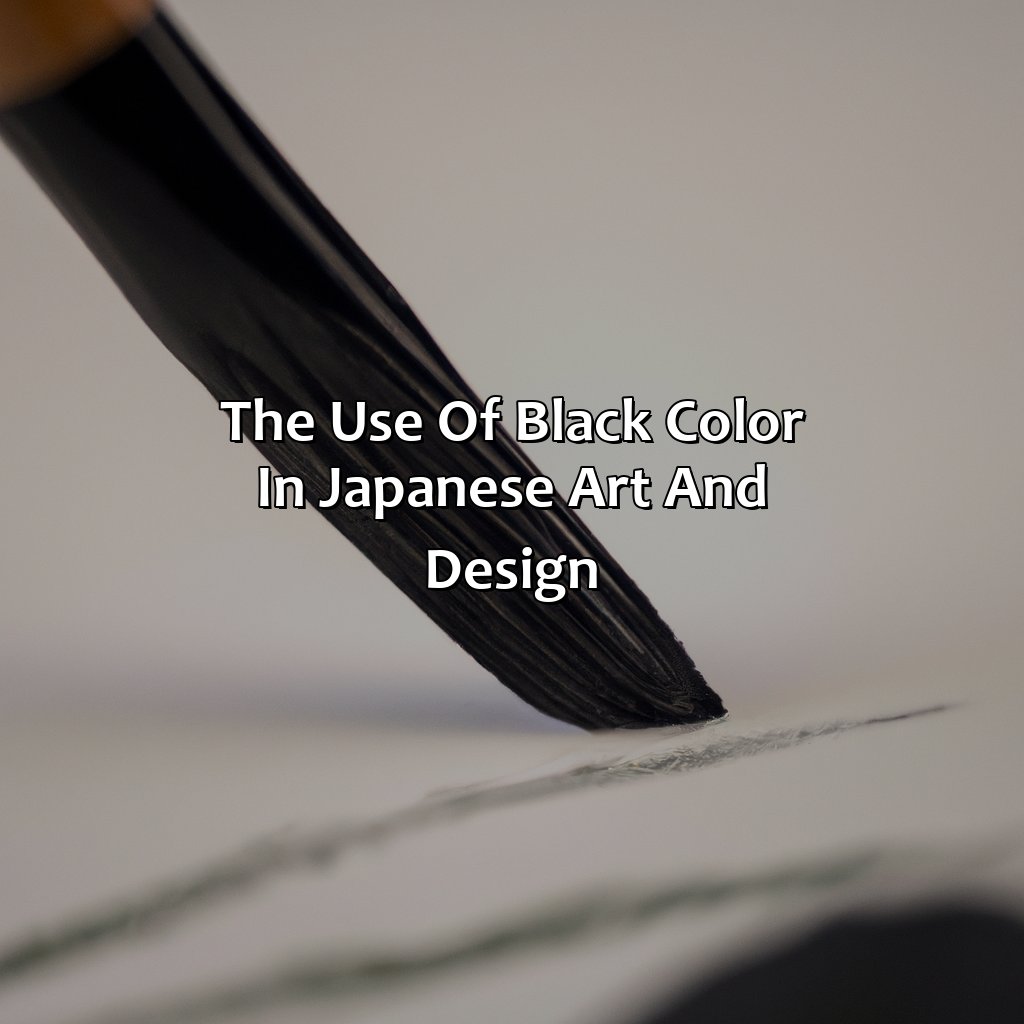
Photo Credits: colorscombo.com by Alan Lopez
To understand the power of black in Japanese art and design, it’s important to explore how it has been used in the past and present. Black is a popular color in traditional Japanese clothing, like the black kimono. In modern fashion, it is still widely used. Black is also found in Japanese interior design. It stands for minimalism, simplicity, elegance, formality, power, and authority. Let’s take a closer look at each of these themes.
Black Color in Traditional Japanese Clothing
Traditional Japanese attire is rich with symbolism and cultural significance, with black being a prominent color choice. Black clothing has been favored for centuries due to its versatility and status. The black kimono, in particular, has a reputation for elegance and formality.
In traditional Japanese clothing, the use of black color symbolizes sophistication and simplicity. Moreover, it represents a person’s social status during that time. For instance, black was worn by samurais who were considered the high-ranking people in society. By contrast, brown and other earth tones were preferred by farmers and commoners.
Black color in traditional Japanese clothing is used to great effect when it comes to formalwear like kimonos. It makes the wearer look more elegant. In addition, it adds a touch of formality to the outfit. Interestingly, black kimonos can also have embroidery of colorful patterns or designs that give off a chic look.
Pro Tip: To make sure that your traditional Japanese outfit is on-trend; throw in an accessory or two like an obi belt or geta sandals to elevate your style game!
Black may be the new black in Japanese fashion, but its symbolism runs deeper than just a trendy color choice.
Black Color in Modern Japanese Fashion
Black color plays a significant role in modern Japanese fashion. The use of black is ubiquitous and an essential part of any fashion line in Japan. In fact, many designers feature black as the main color in their collections.
Japanese designers believe that black is versatile and timeless, and it can convey both elegance and modernity. The color has become iconic in Japanese streetwear, especially with the rise of punk and goth subcultures.
Interestingly, Japanese fashion also incorporates traditional arts like origami, calligraphy, and ikebana into their designs. Black often serves as a foundational color for these art forms and adds depth and symbolism to their designs.
Moreover, black clothing is a symbol of power among businesspeople in Japan. They believe wearing black makes them look serious and authoritative.
Overall, black color has been integrated seamlessly into modern Japanese fashion due to its versatility and symbolism within Japanese culture. Interestingly, black clothing sales continue to increase year on year, ensuring that there will always be space for this stylish hue in Japanese fashion trends. (Source: Zooming Japan)
Black is not just a color, it’s a statement of elegance, power, and authority in Japanese interior design.
Black Color in Japanese Interior Design
The strong symbolism of Black Color in Japanese culture can also be observed in Interior Design. Black enhances the sense of minimalism, simplicity, elegance, formality, power, and authority in any space. This subtle color balances the contrast in interiors and emphasizes natural light’s effect.
For instance, renowned Japanese interior designers often use ‘Kuro’ or black to achieve a cohesive look throughout modern-day residential spaces by incorporating minimal furniture and highlighting it with contrasting colors like wood or white walls. Further, black adds depth to gold details that are regularly used for luxury displays.
Historically, Black was significant during the Edo Period when influential Samurais would decorate their armors with intricate designs using black lacquer just before a battle. The trend carried on to fashion clothing where creating dye known as Kurozome involved fermenting iron scraps resulting in rich hued shades of black that were worn traditionally.
In modern times, Minimalist interiors are often seen floating around the internet with predominant use of black in curtains, furniture and walls emphasizing its importance as an important component of contemporary Japanese décor. A perfect harmony between traditional values and modern elements.
Five Facts About What the Color Black Means in Japan:
- ✅ Black is associated with mourning, grief, and darkness in Japanese culture. (Source: Japan Talk)
- ✅ People in Japan wear black clothing to funerals and other solemn occasions as a sign of respect for the deceased. (Source: Culture Trip)
- ✅ Black is also viewed as a symbol of mystery, power, and sophistication in Japan, and is often used in formal attire and luxury products. (Source: Forbes)
- ✅ In the traditional art of flower arrangement, black flowers are considered taboo and are rarely used. (Source: Bokksu)
- ✅ The color black is a popular design choice in Japanese architecture, fashion, and art, with many contemporary designers incorporating it in their works. (Source: Japan Visitor)
FAQs about What Does The Color Black Mean In Japan
What does the color black mean in Japan?
In Japan, the color black typically represents formality and elegance.
Is black a popular color in Japan?
Yes, black is a popular color in Japan, especially in fashion and formal settings.
What are some traditional uses of the color black in Japan?
Black is often used in traditional Japanese clothing, such as the kimono, and is also commonly used in calligraphy and ink paintings.
Does the color black have any negative connotations in Japan?
In some contexts, black can represent mourning or death in Japan, but this is not always the case.
How does the meaning of black in Japan differ from other cultures?
In many Western cultures, black is often associated with mourning, while in Japan it is more commonly associated with formality and elegance.
Are there any other colors with significant meanings in Japanese culture?
Yes, many other colors have significant meanings in Japanese culture, such as white (purity), red (passion), and blue (serenity).

